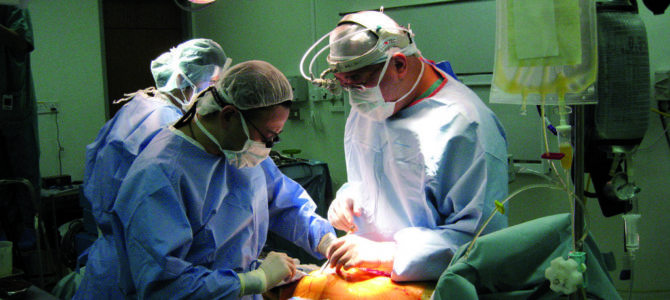
I had a patient once with a liver lesion. At the community hospital where I worked, I reviewed her MRI with the radiologist carefully and we concluded it was a possible liver cancer.
Unfortunately, I shared her care with a university hospital. In their opinion, the lesion was definitely cancer and they so informed her. She promptly drank herself to death.
Of course, it could be argued that the university care did not kill my patient. Expert opinion was rendered and honestly delivered. Diagnostic uncertainty is common in medicine, and her unfortunate reaction was not their responsibility.
But that’s incorrect. What those good doctors did not know at the time, and therefore could not consider, was that my patient had recently lost her husband due to cancer and was in a fragile remission from her alcohol-use disorder. She was living on a margin already.
Once the news was delivered, there was no walking it back and no opportunity to explain that many liver cancers are highly treatable. Instead, a life was lost due to a singular focus on the lesion rather than the whole person. It did not, and should not, matter that the lesion was later proven to be benign.
Today, state and local governments, on the counsel of public health experts, have implemented changes due to COVID-19 that affect nearly every aspect of life, medical and otherwise. Our leaders are making decisions based on training, experience, intelligence, and wisdom, and they have our best interests in mind. But this does not mean they are always correct.
Treatments always have consequences. Risks and side effects need to be placed in the context of the entire person or, in this case, the entire community. Quarantine causes a lot of harm. Care for non-COVID patients suffers through cancelled appointments and delayed surgeries.
Routine health maintenance, including proven strategies such as cancer screenings, has stopped. Patients are afraid to get needed lab work. Pregnant women cannot find willing obstetricians.
Clinical research trials for non-COVID-19 diseases, including everything from lupus to heart disease, are on indefinite hold. For many of these trials, resumption post-quarantine may not be possible. People suffer and die of non-COVID diseases too.
As a liver transplant physician, I am concerned by the potential for reduced access to care and life-saving procedures. Before COVID-19, patients routinely died of liver failure because there aren’t enough donor organs to meet the need. What will happen if, as is now occurring in parts of Europe, organ transplantation is halted altogether? The effects for my patients will be grave. This is true also of friend waiting for a new heart.
And then there is the economy. Here, it is appropriate to remember that, during the last Great Recession, public health experts wisely identified and counted the “deaths of despair” due to increases in alcohol and substance abuse, depression, and so on. In the practice of liver medicine, I witnessed firsthand many “deaths of despair” from alcohol during the Great Recession. It was terrible.
These victims were folks who lost their jobs and so not only their income, but also their security, self-identity, meaning, and social connectivity. They were living on a margin already.
Counting their deaths is not straightforward; after all, pink slips, like MRI interpretations, do not directly kill people. But many thousands of such midlife deaths occurred, and this risk should matter now as well. The conclusion here is simple: a good economy makes good health, and the opposite is also true.
In the present uncertainty, we should support and thank our government leaders and the public health experts for their courage and their willingness. But we, the non-expert public, should nonetheless feel empowered to challenge their decisions and ask: in addition to counting COVID-19 deaths, how are we counting the quarantine’s impact on non-COVID health-care delivery? On the broader economy and its health consequences? How will we know if and when the quarantine confers greater harm than COVID-19, and how might we recognize and address those harms?
The end of the pandemic may weeks or months away. Some believe COVID-19 may become a new normal. These are reasonable uncertainties. But they also lend greater urgency to answering these questions now, or at least trying. Otherwise, using a singular COVID-19 lens, we risk over-response to the detriment of the greater good.
If, in the meantime, my friend dies without a transplant, I want his death counted.









